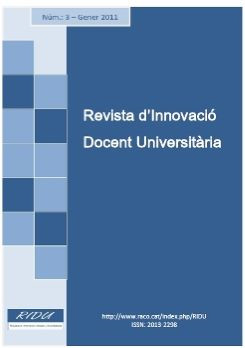The assessment of laboratory subjects with different metodologies
DOI:
https://doi.org/10.1344/105.000001657Keywords:
Teaching evaluation innovation, Experimentation, LaboratoryAbstract
The assessment of subjects which are only performed in the laboratory is a demanding task that requires the use of different methodologies to achieve a full assessment of the knowledge, aptitudes, abilities and skills carried out by students during the academic year. In this paper, the results obtained applying different kind of assessment methods are discussed. The mentioned assessment methods are: the assessment by periodical reports of the practical laboratory class, through written tests and by means of practical exercises performed in the laboratory. The results show that not only can the assessment of the student’s work take into consideration the reports of the practical classes, but it is also necessary the performance of a test, which can be written or practical in the laboratory. It seems that the results do not significantly differ from doing a written exam or a practical one, but it is considered that, if it is possible (usually when there is no a large number of students), it is better to take into account the results of all the three tests. All these tests provide data about the aptitudes, abilities, knowledge and skills of students, but some of them affect more than others in each of these aspects, hence the reports of the practical classes provide extensive information about the aptitudes and capabilities of the students, the written exam of their knowledge and the practical test of the skills they possess.References
Cabrera, A.F.; Colbeck, C.L.; Terenzini, P.T. (1999) Developing performance indicators for assessing classroom teaching practices and student learning: the case of Engineering. Actas del Seminario sobre Indicadores en la Universidad: información y decisiones, Universidad de León.
Castillo Arredondo, S. (2007) El profesorado ante la evaluación de sus alumnos: estrategias y actitudes. La evaluación como instrumento de aprendizaje. Técnicas y estrategias. Ministerio de Educación y Ciencia, Madrid.
Contreras, E. (1990) El profesor universitario y la evaluación de los alumnos. ICE de la Universitat Politècnica de Madrid, Madrid.
De Miguel Díaz, M. (2005) Cambio de paradigma metodológico en la Educación Superior Exigencias que conlleva. Cuadernos de Integración Europea, 2, pp. 16-27.
ENQA (2009) Standards and Guidelines for Quality Assurance in the European Higher Education Area. http://www.enqa.eu/files/Assessing_educational_quality_wr6.pdf
Gallardo Gallardo, E.; Montolio Estivill, D.; Camós Ramió, M. (2010) The European Higher Education Area at work: Lights and shadows defining Continuous Assessment. Revista d’Innovació Docent Universitària,2, pp. 10-22.
García-Ramos, J. M. (1989) Bases pedagógicas de la evaluación. Síntesis, Madrid.
Martínez De Miguel López, S. (2007) Una experiencia de innovación del portafolio del alumno, en la diplomatura de educación social, desde el marco de la educación superior en Europa. Educatio Siglo XXI, 25, pp. 125-144.
Pérez-Juste, R. (1985) Medición en educación. UNED, Madrid.
Zabalza, M. (2001) Evaluación de los aprendizajes en la Universidad. Didáctica universitaria, Madrid.
Downloads
Published
Issue
Section
License
Copyright (c) 2011 Maria Teresa Montañés, Antonio Eduardo Palomares, Maria José Muñoz-Portero, Rita Sánchez-Tovar

This work is licensed under a Creative Commons Attribution 4.0 International License.
Authors whishing to publish in this journal agree to the following conditions:
- The author or author retain copyright and grants the journal the right of first publication of the paper.
- The texts will be published under license "Reconocimiento Creative Commons 4.0 España", which allows to share, distribute, reproduce and the public communication of the paper, as long as the name of the author or authors and the journal are clearly stated.







